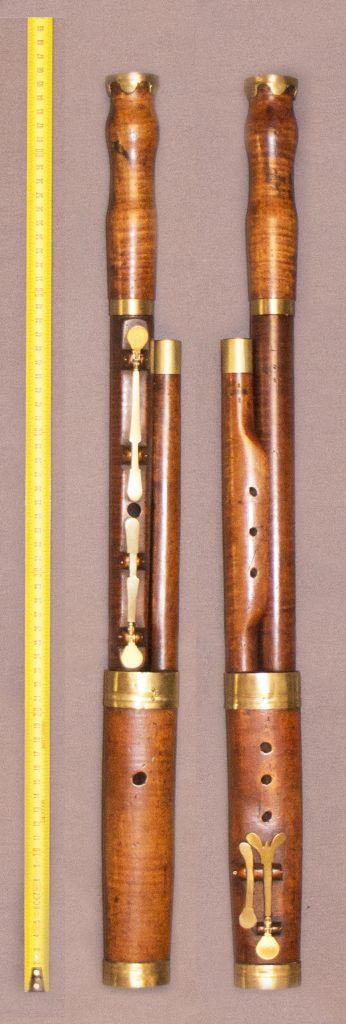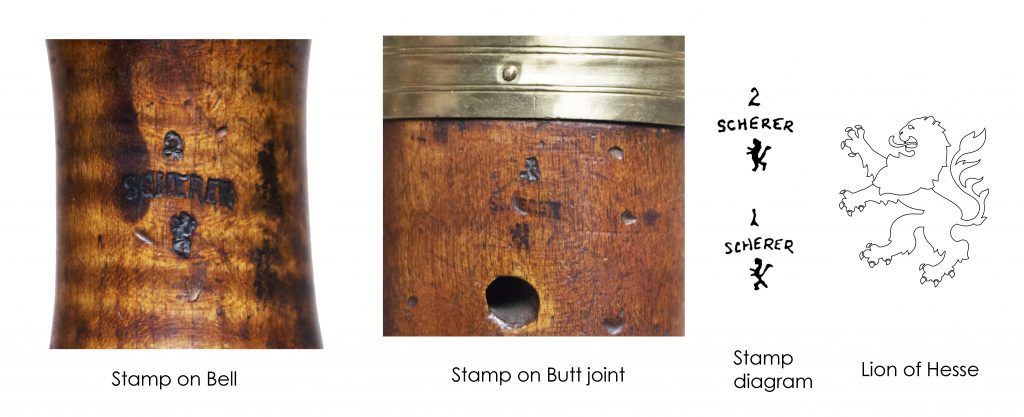FT44 Scherer (3)
This project is based on the analysis of two original eighteenth-century small-size bassoons. The instruments were selected on the basis of the degree of homogeneity of their construction, and the fact that they are both preserved in their original states and in playable condition.
FT44 is a four-key fagottino made of brass and maple by Johannes & Georg H. Scherer in the second half of the 18th Century, located in the Museum für Musikinstrumente der Universität Leipzig.

Phillip Young’s article entitled “The Scherer’s of Butzbach” (1986), reports that the Scherer workshop was established by Johannes Scherer (1664–1772) and continued by his son Georg Henrich Scherer (1703–78). The workshop was well-known for their woodwind instruments and several recorders, flutes, various types of oboes, bassoons and six fagottini are preserved in museums and private collections world- wide.
The maker’s stamp includes the distinguished Lion Rampant of Hesse under the name “SCHERER”. Some joints are also marked with numbers or letters, as discussed by Young, although he does not give clear explanations about their function. William Waterhouse, in the 1993 New Langwill Index, notes that the different letters found on joints of bassoons made by Scherer, such as B, D, G, O, T, or Y, were probably the marks of piece-workers or subcontracted workshops.
None of these letters are stamped on the FT44 fagottino, but the number two is visible on the bell, wing, and long joints; and number one is stamped on the butt joint.
